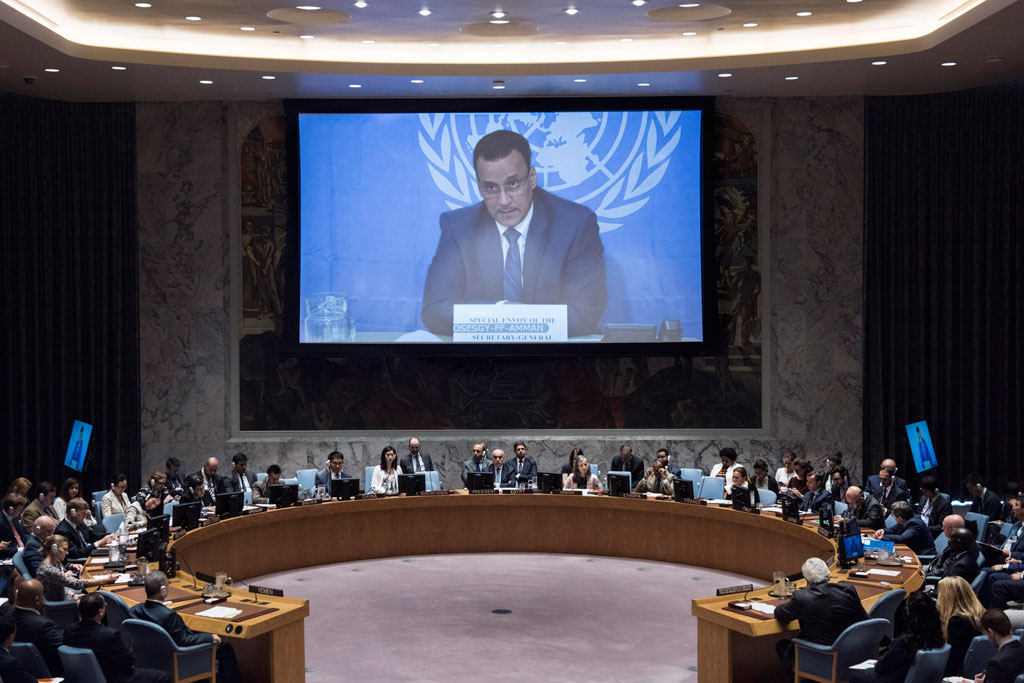New York- UN special envoy for Yemen Ismail Ould Cheikh Ahmed said on Friday that Yemenis should adopt the language of peace as a primacy for solving the Yemeni crisis.
“The UN will continue working with Yemenis to mainstream the language of peace and reach a political solution,” he said.
Speaking to the Security Council by video link, Ould Cheikh uncovered he had received a letter last month from the Houthis and the General People’s Congress, a party led by ousted president Ali Abdullah Saleh, “reaffirming the need to build on what was discussed in the Kuwait talks,” which were suspended in August 2016.
The UN envoy said that in response to the Houthis, he has listed three demands: Meet him in a third country, discuss his proposals and turn them into a concrete agreement that would lessen the bloodshed and alleviate the human suffering, and commit to join those meetings as soon as possible.
“Every day we spend lingering without serious action towards a solution means more destruction and greater loss of lives,” Ould Cheikh said, adding that, “those who survived cholera will continue to suffer the consequences of ‘political cholera’ that infects Yemen and continues to obstruct the road towards peace.”
Before Ould Cheikh’s comments, Under-Secretary-General for Humanitarian Affairs and Relief Coordinator Stephen O’Brien also addressed the Council and said 17 million Yemenis are hungry, nearly 7 million facing famine, and about 16 million lack access to water or sanitation.
Separately, Yemeni Deputy Prime Minister and Foreign Minister Abdel-Malak Al-Mekhlafi said on Friday that the legitimate government is ready to offer all the needed concessions for a solution to the Yemeni crisis in the framework of the three references based on the Gulf initiative, outcomes of Yemeni national dialogue and UN resolution 2216.
